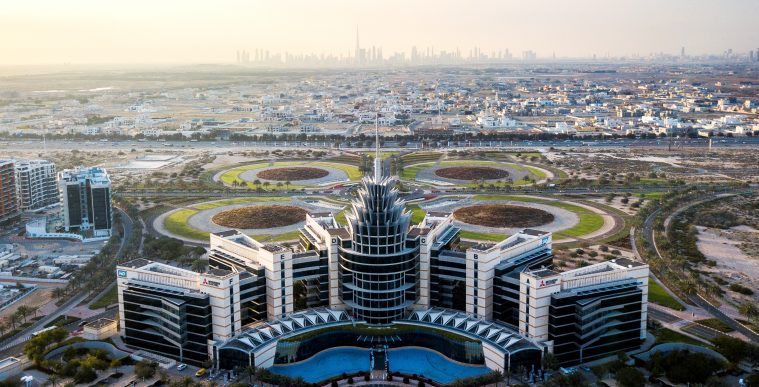Dubai Silicon Oasis Authority revenues up 11.2% to Dhs590m
Overall profits for the tech hub reached Dhs205.7m – a surge of 9.5 per cent compared to the year before

Dubai Silicon Oasis Authority has announced annual revenue of Dhs590.5m for 2017 – a growth of 11.2 per cent over the previous year.
The results were revealed by His Highness Sheikh Ahmed bin Saeed Al Maktoum, Chairman of DSOA, who added that overall profits reached Dhs205.7m – a surge of 9.5 per cent compared to 2016. There was also an increase of 16 per cent in business partners, with 2,459 companies now operating in the integrated free zone technology park.
In a statement, His Highness said that the results reflect the continued growth of the technology sector. He added that DSOA is keen to implement innovative and smart initiatives and projects that contribute to sustainable development while supporting the emirate’s economy, which is moving towards a future based on diversity, progress and knowledge rather than a dependence on oil.
Furthermore, he said that Dubai Silicon Oasis has become one of the most important free zones in the region, allowing international and Gulf tech companies to both establish their business in the region and augment their expansion. Such growth, he added, is facilitated by DSO’s modern infrastructure, which is backed by Dubai’s advanced network of airports, ports, roads, specialised free zones, and legislative environment that brings continued foreign direct investment.
Meeting the needs of businesses
Vice Chairman and CEO of DSOA, Dr Mhammed Al Zarooni, attributed the tech hub’s success in growing and delivering profits to its ability to meet the needs of business partners through its services and facilities.
He noted that DSO is attracting a steady influx of technology companies from around the world, pointing to the introduction of 339 new companies to the free zone in 2017.
Of the2,459 companies based there, 37 per cent are from the Middle East and Africa, 33 per cent are from Asia, 23 per cent from Europe, and 7 per cent America. Some 82 per cent of these companies are specialised in technology, which 18 per cent focus on commercial services and other service sectors.
The annual results show that revenues from the leased land area increased by 33.5 per cent, while revenues from service fees increased by 21.8 per cent compared to 2016.
Smart credentials
In February 2017, HH Sheikh Ahmed bin Saeed Al Maktoum laid the foundation stone for the project that will become the first integrated smart city in Dubai. The Dhs1.3bn project covers an area of 150,000 square meters and is currently 40 per cent complete. It is expected tobe fully completed in Q1, 2019.
![]()
The project will comprise 71,000 square metres of office space, 46,000 square metres of residential area, and the 112-key, 59-furnished apartment complex Radisson RED Dubai Silicon Oasis. It will also include lifestyle facilities including restaurants, cafes, prayer rooms, a shopping centre, and an underground car park with capacity for 2,500 vehicles.
Plans also include the incorporation of 60 smart services worth Dhs100m, helping to offer an efficient, seamless, safe and impactful city experience for residents and visitors.
Among the smart services will be the measurement of noise and water levels, and air quality; a tracking system to identify the location of children and minors, and ensure their safety; and more.
Across the free zone numerous other smart initiatives are either underway or planned for the near future. These include degrees in various aspects of smart technology, the Dhs19m Dubai Smart City Accelerator at Dubai Technology Entrepreneurship Centre, and a catalogue of partnerships and agreements with global and local giants including Schneider Electric, Visa, Volkswagen Middle East, the Roads and Transport Authority, and others.
